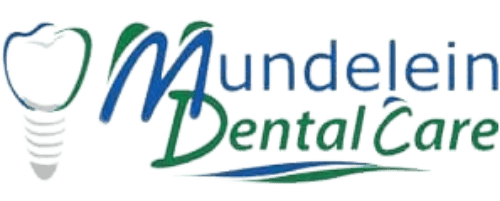What do oral surgeons do, and what are their primary roles and responsibilities? Oral surgeons are specialized dental professionals who perform complex procedures involving the mouth, teeth, and jaw. They handle tasks ranging from tooth extractions to corrective jaw surgeries, ensuring patients receive comprehensive care for various oral health issues.
What Do Oral Surgeons Do? Dental Implant Procedures
Oral surgeons play a crucial role in the placement of dental implants, a common procedure designed to replace missing teeth and restore oral functionality. When considering what do oral surgeons do, it’s important to understand that they are responsible for the surgical aspect of implant placement, which involves embedding a titanium post into the jawbone. This post acts as a sturdy foundation for a replacement tooth or bridge. The expertise of an oral surgeon ensures that the implant is positioned correctly and integrates well with the bone, providing a long-lasting solution for patients.
In addition to their surgical skills, oral surgeons are trained to handle any complications that may arise during the dental implant process. They work closely with other dental professionals to ensure that the patient’s overall oral health is maintained throughout the procedure. Understanding what do oral surgeons do highlights their integral role in not only performing the surgery but also in planning and managing the entire treatment process. For more information on various procedures performed by oral surgeons, you can visit our page on Oral Surgery Procedures: What You Need to Know.
Wisdom Teeth Extractions
When exploring the question, “What do oral surgeons do?” one of the most common procedures they perform is wisdom teeth extractions. These third molars, often emerging in late adolescence or early adulthood, can lead to various dental issues if not properly managed. Oral surgeons are specially trained to handle the complexities associated with these extractions, ensuring that the procedure is conducted safely and effectively. Their expertise is crucial in preventing potential complications such as impaction, infection, or misalignment of other teeth.
The removal of wisdom teeth is a significant aspect of oral surgery, highlighting the essential role oral surgeons play in maintaining oral health. By understanding what do oral surgeons do, patients can appreciate the importance of their skills in managing dental health challenges. For those seeking more information on oral surgery options, visiting Top Oral Surgery Mundelein can provide further insights into the comprehensive care available.
Jaw Surgery Techniques
When exploring the question, “what do oral surgeons do,” one significant area of expertise is jaw surgery techniques. Oral surgeons are skilled in performing various procedures to correct jaw irregularities, which can improve both function and appearance. These techniques may involve realigning the jaw to address issues such as misalignment, congenital disabilities, or trauma-related injuries. By utilizing advanced surgical methods, oral surgeons can help patients achieve better oral health outcomes and enhanced facial symmetry.
Facial Trauma Treatment
When considering what oral surgeons do, one of their critical roles is the treatment of facial trauma. This specialized area involves addressing injuries to the face, mouth, and jaws, which can result from accidents, sports injuries, or other incidents. Oral surgeons are trained to manage complex cases that may involve fractures of the jawbones, cheekbones, or eye sockets, as well as soft tissue injuries. Their expertise ensures that both functional and aesthetic aspects are considered during the healing process. For those in need of expert care, Mundelein Dental Care offers a range of services, and you can learn more by visiting their Mundelein Dentist page.
Oral Pathology Diagnosis
In exploring what oral surgeons do, one critical aspect of their role is oral pathology diagnosis. This involves the identification and study of diseases affecting the oral and maxillofacial regions. Oral surgeons are trained to recognize various pathological conditions, ranging from benign lesions to more serious conditions like oral cancer. Their expertise allows them to assess symptoms, perform biopsies, and interpret diagnostic tests to determine the nature of oral diseases. By understanding the complexities of oral pathology, oral surgeons play a vital role in ensuring accurate diagnoses and guiding appropriate treatment plans for patients.
Anesthesia Administration Methods
When exploring the question, “What do oral surgeons do?” one critical aspect of their role is the administration of anesthesia. Oral surgeons are trained to use various anesthesia methods to ensure patient comfort and safety during surgical procedures. These methods can range from local anesthesia, which numbs a specific area, to general anesthesia, which induces a state of unconsciousness. Additionally, sedation techniques such as intravenous (IV) sedation or nitrous oxide may be employed to help patients relax. The choice of anesthesia depends on the complexity of the procedure and the patient’s medical history, highlighting the oral surgeon’s expertise in tailoring anesthesia plans to meet individual needs.
Cleft Lip and Palate Repair
When exploring the question, “what do oral surgeons do,” one significant area of their expertise is cleft lip and palate repair. This specialized surgical procedure addresses congenital deformities that affect the upper lip and the roof of the mouth, which can impact a person’s ability to eat, speak, and breathe properly. Oral surgeons play a crucial role in reconstructing these areas to improve functionality and appearance, often working as part of a multidisciplinary team to provide comprehensive care. Their extensive training and experience enable them to perform these complex surgeries, contributing to enhanced quality of life for individuals affected by these conditions.
TMJ Disorder Management
When exploring the question, “What do oral surgeons do?” one significant aspect of their expertise is the management of Temporomandibular Joint (TMJ) disorders. Oral surgeons are trained to diagnose and address issues related to the jaw joint and surrounding muscles, which can cause discomfort and affect daily activities such as eating and speaking. Their role involves evaluating the severity of the disorder and determining the most appropriate course of action to alleviate symptoms and improve jaw function. By understanding the complexities of TMJ disorders, oral surgeons play a crucial role in helping patients achieve better oral health and overall well-being.
Bone Grafting Procedures
When exploring the question, “what do oral surgeons do,” one significant aspect of their expertise is performing bone grafting procedures. These procedures are essential for patients who require additional bone support, often in preparation for dental implants or to address bone loss due to injury or disease. Oral surgeons utilize their specialized training to carefully assess and execute bone grafting, ensuring that the jawbone is adequately prepared for future dental work. This process involves the transplantation of bone tissue, which can help regenerate and strengthen the existing bone structure, ultimately contributing to improved oral health and functionality.
Conclusion
Understanding what oral surgeons do is essential for anyone considering oral surgery. For more information or to schedule a consultation, call 847-566-5560 or visit Google Maps to read reviews.

